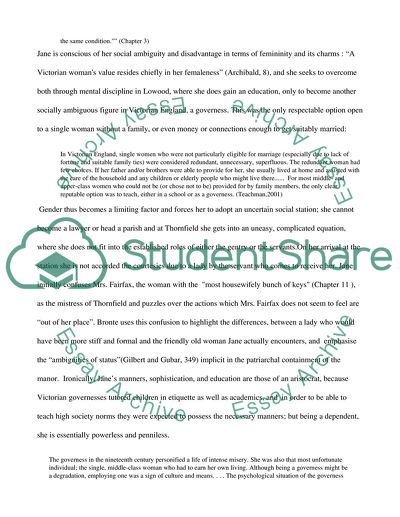Cite this document
(“The Relationship Between Social Class and Gender in Jane Eyre Essay”, n.d.)
The Relationship Between Social Class and Gender in Jane Eyre Essay. Retrieved from https://studentshare.org/miscellaneous/1501111-the-relationship-between-social-class-and-gender-in-jane-eyre
The Relationship Between Social Class and Gender in Jane Eyre Essay. Retrieved from https://studentshare.org/miscellaneous/1501111-the-relationship-between-social-class-and-gender-in-jane-eyre
(The Relationship Between Social Class and Gender in Jane Eyre Essay)
The Relationship Between Social Class and Gender in Jane Eyre Essay. https://studentshare.org/miscellaneous/1501111-the-relationship-between-social-class-and-gender-in-jane-eyre.
The Relationship Between Social Class and Gender in Jane Eyre Essay. https://studentshare.org/miscellaneous/1501111-the-relationship-between-social-class-and-gender-in-jane-eyre.
“The Relationship Between Social Class and Gender in Jane Eyre Essay”, n.d. https://studentshare.org/miscellaneous/1501111-the-relationship-between-social-class-and-gender-in-jane-eyre.


